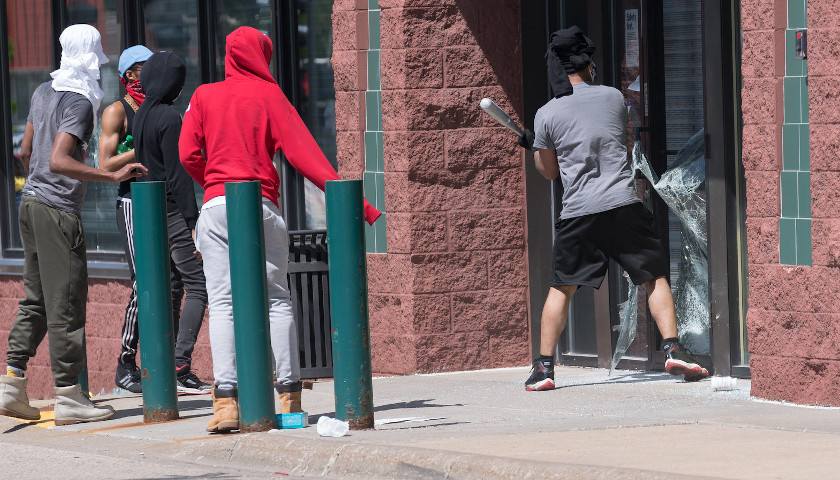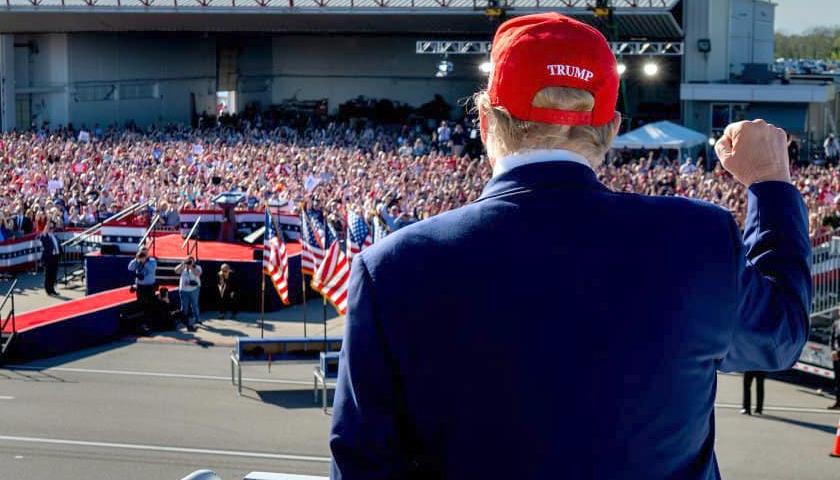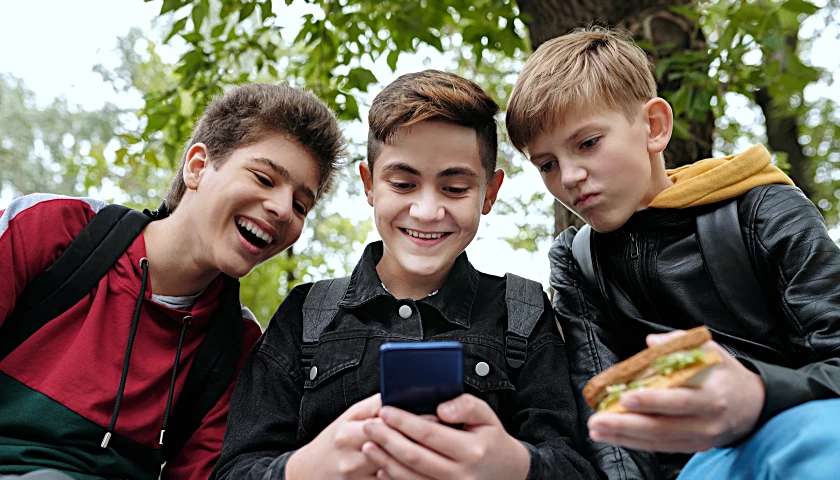State bars have become notorious for bringing charges against conservative attorneys like Donald Trump’s former attorney and constitutional legal scholar John Eastman, but last week a California disciplinary court judge dismissed such politically motivated charges. California Bar Disciplinary Court Judge Dennis G. Saab ruled on October 3 that attorney Marla Anne Brown did not engage in professional misconduct by tweeting that looters should be shot, since it was protected free speech in her personal capacity.
“The highest priority of the State Bar of California is public protection,” Brown’s attorney Jesse D. Franklin-Murdock told The Arizona Sun Times. “The State Bar Court lived up to that promise by reaffirming that Ms. Brown has the same First Amendment rights that all lawyers have.”
Brown’s attorney, Krista L. Baughman, added, “The Court’s decision is a victory not only for Ms. Brown, who was exonerated of every charge brought against her, but for all California attorneys who wish to exercise their free speech rights without fear of punishment. The Order accords with decades of First Amendment precedent establishing that this case should never have been brought in the first place, and we are pleased that Ms. Brown may now return to the practice of law with her unblemished record intact.”
The State Bar of California brought four charges against Brown related to her Twitter account. Two accused her of “moral turpitude,” a vague ethics rule often used as a catchall to discipline attorneys, and the other two charges accused her of breaking criminal anti-rioting laws. The first two charges claimed that she had misrepresented her Twitter biography and directed others to commit acts of violence.
Brown stated in her Twitter bio that she was an attorney for the Los Angeles Police Department (LAPD) union. After the death of George Floyd, there were massive violent protests and looting in Los Angeles. The California bar objected to 15 tweets Brown made during the rioting.
In response to a tweet stating that Washington D.C. was about to be overrun by Antifa, Brown tweeted, “Can’t wait. At last a reason to shoot them.” Similarly, she responded to a tweet about protesters blocking the streets, “Shoot the protesters” and another tweet said, “They need to be shot.”
In response to political commentator Joe Scarborough, she tweeted, “Omg Scarborough you’ve hit a new low in stupidity. Let’s go burn your house down with you in it.”
In response to a tweet about CVS being looted and the police not stopping the looting, Brown tweeted, “So let CVS leave the neighborhood. Along with Whole Foods and every other quality business. And then watch these sand thugs complain about no businesses In The area.” The rest of her tweets made similar statements.
Saab noted that Brown had few followers on Twitter, and she did not attempt to amplify her tweets. Her account didn’t follow other law enforcement types.
Five individuals testified in the disciplinary proceedings about how they viewed Brown’s tweets. However, they said they did not see any violence erupt afterward.
Brown apologized to the LAPD union publicly, stating that she regretted the tweets.
In his opinion, Saab acknowledged that “false statements are not protected speech.” He also admitted that case law had established that “[b]ecause attorneys are officers of the court with a special responsibility to protect the administration of justice, courts have recognized the need for the imposition of reasonable speech restrictions upon them.”
However, Saab found that since Brown’s speech was made in her capacity as a private citizen, not as an attorney, “the full protections of the First Amendment apply — particularly where, as here, Respondent’s speech was communicated in her capacity as a private citizen; was used to express her personal thoughts, emotions, or ideas; and was completely unrelated to the practice of law.”
Saab said her tweets about shooting the protesters were protected free speech because they were not imminent calls for violence, and the violence was not likely to occur. He cited the 1969 seminal free speech case Brandenburg v. Ohio, involving the Ku Klux Klan. There, a Klan leader publicly stated, “[I]f our President, our Congress, our Supreme Court, continues to suppress the white, Caucasian race, it’s possible that there might have to be some revengeance taken.” The leader announced a march on Congress. The U.S. Supreme Court found that a statute prohibiting his speech was unconstitutional since it violated the First Amendment.
Saab said the California bar “did not show that Respondent had the intent to incite imminent lawless action, that her tweets were likely to be heard by an audience that would understand her intent, nor that such imminent lawless action was likely to occur as a result of her tweets.”
He said she did not misrepresent herself as an LAPD union attorney in her bio, which could constitute moral turpitude because she was still somewhat involved with LAPD unions.
As for the criminal counts, alleging she had violated both state and federal anti-rioting laws, Saab said they require intent, which the California bar had failed to prove.
Saab said, “Respondent presented this court with a credible and reasonable interpretation of the meaning behind her words, i.e., that she posted the above-noted tweets as an expression of her anger, fear, and frustration with the violence taking place around her and in disagreement with some of the sentiments she saw being expressed by others on Twitter.”
He said there was a lack of clear and convincing evidence and dismissed all four counts with prejudice so they could not be brought again.
– – –
Rachel Alexander is a reporter at The Arizona Sun Times and The Star News Network. Follow Rachel on Twitter / X. Email tips to [email protected].
Photo “Minnesota Rioters” by Lorie Shaull. CC BY-SA 2.0.





